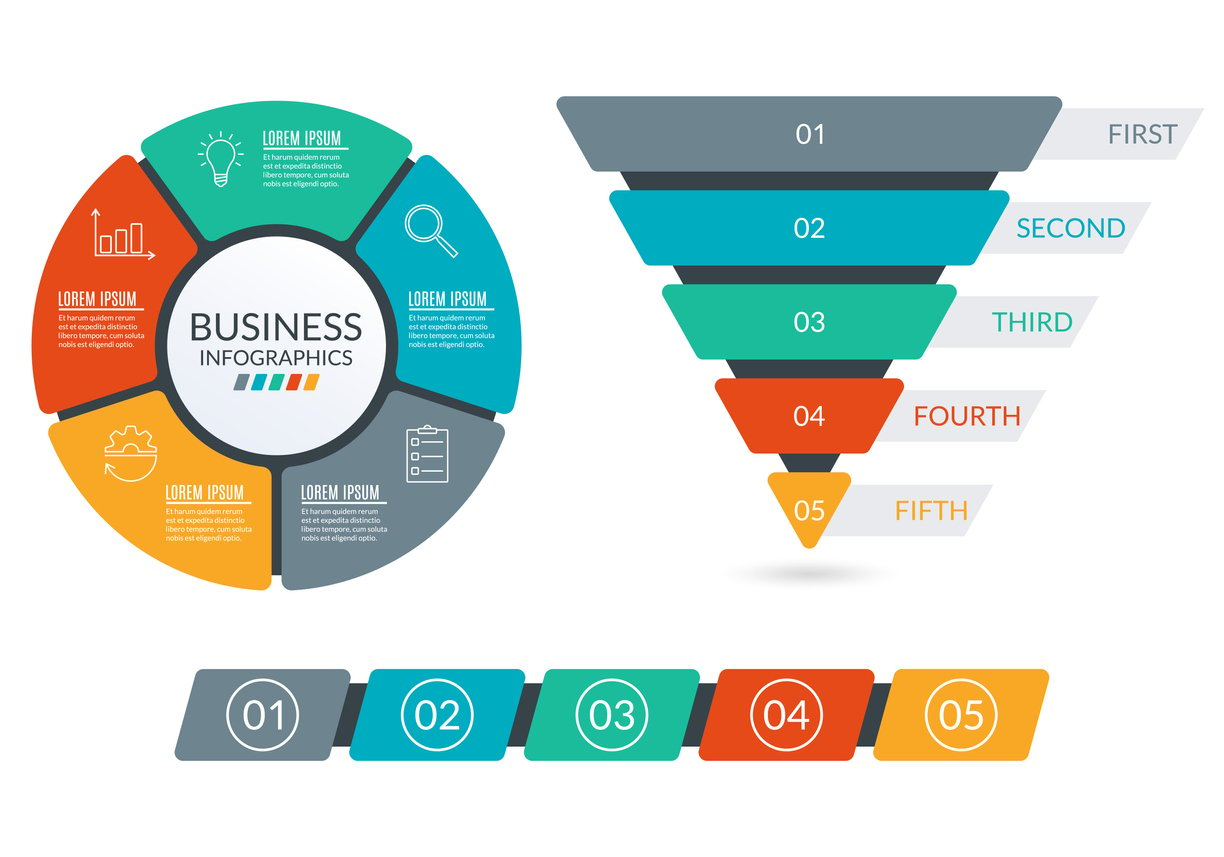
6 Reasons Why You're Failing at Phone Sales Techniques
 Updated on
Updated on
 By Carlos Correa
By Carlos Correa
Carlos Correa
Carlos has been involved in the sales space for well over ten years. He began in the insurance space as an individual sales agent, managing teams as s...
learn more
Carlos Correa
Carlos has been involved in the sales space for well over ten years. He began in the insurance space as an individual sales agent, managing teams as s...
Table of Contents
Table of Contents
Phone sales can be one of the most effective ways to connect with potential customers—if you do it right. But selling over the phone isn't easy. Whether you're dealing with rejection, struggling to keep prospects engaged, or getting blocked by gatekeepers, it's easy to see why so many sales reps struggle to close deals.
If you've been facing challenges in your phone sales efforts, don't worry—you're not alone. The key to success lies in refining your approach and using proven strategies to overcome common roadblocks.
In this guide, we'll cover everything you need to know about phone sales techniques, including:
- Introduction to phone sales techniques
- The different types of phone sales techniques—outbound vs. inbound
- Why phone sales can be so difficult (and how to overcome these challenges)
- 3 powerful phone sales techniques that drive real results
- The best sales tools and technologies to maximize efficiency and conversions
By the end of this article, you'll have a clear roadmap to improve your phone sales game and start closing more deals with confidence.
Let's dive in.
Introduction to Phone Sales Techniques

What are phone sales techniques anyway?
Basically, we're talking about any kind of tactic or strategy you employ when you make phone sales calls.
Maybe you're going to stand up while you're calling, or you've got a set of qualifying questions to ask. Both of these are sales techniques, and they're actually two of the best phone sales techniques we're going to discuss shortly.
"Okay, so phone sales techniques are just whatever it is you're doing while on the phone? And why exactly should I care about learning new techniques?"
Well, here's why:
- 50% of your prospects aren't going to be a great fit (so knowing the best phone sales techniques will help you determine this faster)
- As much as 35-50% of sales go to the company that responds to a lead first (highlighting the importance of great inbound phone sales techniques)
- It takes an average of 8 phone sales calls to reach a prospect (so you'll need to be relentless)
As you can see, those who work hard on developing the best phone sales techniques are inevitably the ones who win, and the ones who meet their sales quota month after month.
So, what do these techniques look like?
Types of Phone Sales Techniques
Before we discuss the various phone sales techniques you should be working on, it's important to understand that these skills differ based on whether you're taking an inbound or an outbound approach to sales.
Outbound Phone Sales Techniques
Outbound essentially means you're hunting down prospects (rather than them coming to you), and it involves a lot of cold calling.
As a result, it's important to be mindful of the fact that your prospects aren't expecting your call, that they're busy doing whatever it is that they do, and that you're interrupting them.
Make sure to thank them for being generous with their time, and be sure not to waste it (that is, get to the point).
In fact, studies have shown that prospects are generally happy to listen for around 30 seconds. Any more than that, and you're greatly reducing your chances of booking a meeting.
Inbound Phone Sales Techniques
Inbound phone sales techniques require a slightly different approach.
With the inbound methodology, leads are coming to you, influenced by the various marketing activities your colleagues have invested in.
But that doesn't necessarily mean they're buyers, at least not yet.
It's important for inbound teams to recognize that when they're making phone sales calls that the person on the other end of the line still needs to be nurtured and convinced that your product or service is the right fit for them.
Inbound phone sales techniques should be focused on educating the prospect, and moving them down the pipeline in a manner that suits their needs.
6 Reasons Why Phone Sales Techniques Are Hard to Execute

Mastering phone sales techniques requires more than just a good script and a confident voice. Unlike face-to-face interactions, sales calls remove the advantage of body language, making it harder to build trust and rapport. Plus, factors like call reluctance, objections, and gatekeepers can make closing deals over the phone a real challenge.
Let's look at six key reasons why phone sales can be difficult—and how to overcome these hurdles with the right strategies.
1. Lack of Face-to-Face Communication
In-person sales meetings allow prospects to read your facial expressions, body language, and overall demeanor—subtle cues that help build trust. But when selling over the phone, you lose these advantages, making it harder to establish a genuine connection.
Studies suggest that 55% of communication is nonverbal, which means sales reps must compensate for this loss with strong verbal communication skills.
To build trust over the phone, focus on the three V's of vocal impact: Volume, Variation, and Velocity:
- Volume: Speak clearly and confidently, but avoid sounding too loud or aggressive.
- Variation: Use changes in tone to emphasize key points and keep the conversation engaging.
- Velocity: Speak at a steady pace—too fast can feel pushy, while too slow can seem unconfident.
Additionally, mirroring the prospect's tone and energy can create a sense of familiarity and trust.
2. Not Handling Objections Effectively
Even the best phone sales techniques won't guarantee a "yes" on the first call. Sales reps frequently hear objections like:
- "I'm not interested."
- "I don't have the budget for this right now."
- "I need to talk to my boss before making a decision."
Instead of seeing objections as roadblocks, view them as opportunities to provide more value. Here's how:
- Acknowledge the objection: Show empathy by saying, "I completely understand."
- Ask follow-up questions: Uncover the real reason behind the hesitation.
- Use social proof: Share success stories of customers in similar situations.
- Offer a limited-time incentive: Create urgency without sounding pushy.
When done right, these techniques can turn a potential "no" into a strong "yes."
3. Call Reluctance and Sales Anxiety
Call reluctance isn't just for beginners, even seasoned sales professionals experience anxiety before picking up the phone. Fear of rejection, past failures, or lack of confidence in the product can all contribute to hesitation.
To overcome call reluctance, try these strategies:
- Shift your mindset: Instead of viewing calls as "selling," see them as problem-solving.
- Use positive visualization: Picture a successful conversation before dialing.
- Practice with role-playing: Simulate tough sales calls with colleagues or mentors.
- Set small goals: Aim for a certain number of calls or booked meetings per day.
Confidence in phone sales comes from preparation and repetition. The more calls you make, the easier it gets.
4. Keeping the Prospect Engaged
With distractions everywhere, keeping a prospect engaged on a sales call is a major challenge. Research shows that the average person's attention span is just 8.25 seconds—shorter than a goldfish!
To keep prospects engaged:
- Use storytelling: Share compelling examples of how your product has helped others.
- Ask open-ended questions: Encourage dialogue instead of delivering a monologue.
- Pause strategically: Give prospects time to process and respond, making them feel heard.
- Listen actively: Repeat key points they mention to show you're paying attention.
Mastering these phone sales techniques will make your calls feel more like valuable conversations rather than one-sided pitches.
5. Gatekeepers Blocking Access to Decision-Makers
Gatekeepers—such as assistants or receptionists, are trained to filter calls and prevent direct access to decision-makers. If you can't get past them, your phone sales efforts will hit a dead end.
To increase your chances of success, do the following:
- Sound confident and authoritative: Speak like you're meant to be connected.
- Use first names: "Hi, I was hoping to speak with John. Is he available?" sounds warmer than "Can I speak with the manager?"
- Be vague yet professional: "I'm following up on an important matter" can pique curiosity.
- Call at strategic times: Early mornings or late afternoons often mean fewer gatekeepers on duty.
When you do reach the decision-maker, you'll have a small window to make an impact. Craft a concise, compelling elevator pitch by answering three key questions:
- Who are you? (Introduce yourself and your company.)
- What problem do you solve? (Highlight a pain point relevant to them.)
- Why should they care? (Share a benefit or quick success story.)
Example:
"Hi [Name], I'm [Your Name] from [Company]. We help businesses like yours streamline [specific process] and increase [specific benefit]. I'd love to share how we recently helped [Client] achieve [Result]. Do you have a moment to chat?"
6. Managing Rejection and Sales Burnout
Rejection is an unavoidable part of telephone sales, but too much of it can lead to burnout and loss of motivation. If you let rejection affect your confidence, it can create a downward spiral of poor performance.
Here's how to stay mentally strong:
- Don't take it personally: Rejection isn't about you—it's often about timing or the prospect's needs.
- Track progress, not just wins: Celebrate small victories like setting up a follow-up call.
- Practice self-care: Take breaks, exercise, and maintain a healthy work-life balance.
- Join a sales community: Engage with other phone sales professionals for support and motivation.
By applying these strategies, you'll be better equipped to handle rejection and keep pushing forward.
3 Results-Driven Best Phone Sales Techniques

Closing deals over the phone isn't about luck, it's about strategy. The most successful sales reps follow proven phone sales techniques that help them connect with prospects, build trust, and guide conversations toward a "yes."
Below, we'll break down the best phone sales techniques that drive results, from making a great first impression to structuring calls effectively and using advanced rapport-building strategies.
1. Using Personalization to Make a Strong First Impression
The first few seconds of a sales call are crucial. Research shows that 71% of customers say they expect personalized sales interactions, yet many reps still use generic, robotic scripts.
How to Personalize Your Sales Calls
Before dialing, take a few moments to gather information about your prospect. Personalization can be based on:
- Company background: "I saw that [Company] recently launched [New Product]. How has that been going?"
- Industry challenges: "Many [Industry] companies struggle with [Common Pain Point]. Is that something you're experiencing?"
- Previous interactions: "Last time we spoke, you mentioned [Issue]. Have you found a solution yet?"
Why Personalization Works in Phone Sales
- It shows prospects that you've done your research and aren't just another cold caller.
- It creates an immediate sense of relevance and credibility.
- It increases engagement, making it more likely the prospect will stay on the line.
By personalizing your approach, you make it harder for prospects to dismiss your call and easier to build rapport from the start.
2. How to Structure a Winning Sales Call (Introduction, Pitch, Close)

Even the best phone sales techniques won't work without a well-structured call. A clear framework keeps conversations focused and increases the chances of converting prospects into customers.
Step 1: The Introduction – Grabbing Attention Immediately
Your introduction should be concise, professional, and engaging. Avoid saying, "Hi, I'm [Your Name] from [Company]. Do you have a moment to talk?" because it gives the prospect an easy way to say "no."
Instead, try:
"Hi [Name], this is [Your Name] from [Company]. I work with businesses like yours to [Solve Problem]. I noticed [Specific Insight About Their Business], and I'd love to share how we can help. Does that sound good?"
Why this works:
- Establishes credibility quickly
- Shows you've done your research
- Encourages a conversation rather than a rejection
Step 2: The Pitch – Focusing on Value, Not Features
Once you have their attention, avoid the mistake of jumping into a long-winded product pitch. Instead, focus on value and how your solution solves their problem.
A winning sales pitch should:
- Identify a problem the prospect is facing
- Offer a solution tailored to their needs
- Include a relevant success story or case study
Example:
"Many companies in [Industry] struggle with [Problem]. We recently helped [Similar Company] increase [Key Metric] by [Solution]. I believe we can do the same for you. Can I ask how you're currently handling this challenge?"
Step 3: The Close – Asking for the Next Step
Many sales reps hesitate to close the deal, leading to lost opportunities. Instead of asking, "Would you be interested?" (which invites a "no"), use a confident call-to-action:
- For a direct close: "Based on what we've discussed, I'd love to set up a demo next week. Does Tuesday or Thursday work better?"
- For a trial close: "Would it make sense to explore how this could work for your team?"
Key takeaway: Always guide the prospect toward a clear next step.
3. The Power of Mirroring and Rapport-Building Techniques

Building rapport is one of the most underrated yet effective phone sales techniques. When prospects feel comfortable with you, they're more likely to trust your recommendations.
What is Mirroring in Sales?
Mirroring is the subtle technique of matching the prospect's tone, speech patterns, and energy level to create a sense of connection.
For example:
- If a prospect speaks slowly and thoughtfully, avoid talking too fast—adjust your pace.
- If they sound enthusiastic and energetic, match their excitement.
- If they use specific industry jargon, mirror their language to show familiarity.
Why Mirroring Works in Phone Sales
- It makes conversations feel more natural and less like a pitch.
- It builds subconscious trust because people are drawn to those who are similar to them.
- It helps establish an emotional connection without face-to-face interaction.
Other Rapport-Building Techniques
Here are more rapport building techniques to help you out:
|
Technique |
Description |
|
Active listening |
Repeat key points they mention ("So what I'm hearing is that your biggest challenge is…"). |
|
Using their name |
People respond positively when they hear their own name. |
|
Being genuinely curious |
Ask thoughtful follow-up questions instead of sticking rigidly to a script. |
Sales Tools and Technologies That Improve Phone Sales
Even the best phone sales techniques can only take you so far without the right tools. Sales reps today need technology to streamline their workflow, track performance, and improve call efficiency.
The right sales tools can help you create cold call scripts, automate tasks, analyze conversations, and ensure that no lead falls through the cracks.
Let's look at how CRM systems, AI-powered analytics, and automation tools can take your phone sales to the next level.
How CRM and Sales Call Tracking Software Boost Efficiency
CRM systems and call tracking software play a critical role in phone sales. They help reps manage leads, track conversations, and optimize follow-ups, leading to higher conversion rates and improved efficiency.
Here's how key CRM features can enhance phone sales performance:
|
CRM Feature |
How It Boosts Efficiency |
|
Automates lead management, follow-ups, and reminders, ensuring reps never miss a prospect. |
|
|
Displays a local area code on outbound calls, increasing the likelihood of prospects picking up. |
|
|
Enables reps to make and receive calls directly from the CRM, logging conversations automatically. |
|
|
Sends automated, personalized emails or texts to nurture leads over time. |
By using a CRM like Ringy, and call tracking tools, sales reps can spend less time on manual tasks and more time engaging with prospects.
Using AI-Powered Analytics to Refine Sales Calls
AI continues to transform phone sales by analyzing calls, identifying patterns, and providing real-time coaching. AI-powered analytics tools can:
- Analyze call sentiment: Detect positive or negative tones in customer responses.
- Provide real-time feedback: Suggest adjustments in tone, pacing, or responses during live calls.
- Identify winning scripts: Analyze past sales calls to determine which scripts lead to higher conversion rates.
- Transcribe and summarize calls: Automatically generate call summaries and action items for follow-ups.
For example, AI-powered tools like Gong can analyze thousands of sales calls to uncover what top-performing reps do differently. By leveraging these insights, sales teams can refine their phone sales techniques and improve success rates.
Leveraging Sales Automation and Follow-up Systems
Consistent follow-ups are key to closing deals, but manually tracking every lead can be overwhelming. Sales automation tools ensure timely follow-ups without overwhelming your team.
Best Practices for Sales Automation:
- Automated follow-up emails: Send personalized emails if a prospect doesn't answer the phone.
- Smart call scheduling: Use AI to determine the best time to call based on prospect behavior.
- Pre-recorded voicemail drops: Leave a professional voicemail with one click instead of recording each message manually.
- Multi-channel outreach: Combine phone calls, emails, and text messages for a comprehensive follow-up strategy.
Example of an Automated Follow-Up Sequence:
- Day 1: Initial call + follow-up email if no answer.
- Day 3: Second call attempt with a voicemail drop.
- Day 5: Text message follow-up with a quick value proposition.
- Day 7: Personalized email with a case study or relevant content.
By using automation, sales reps can stay top-of-mind with prospects without spending hours on manual outreach.
Conclusion
Okay, so now you've got all the inside tips on phone sales techniques.
You're armed to the teeth with tricks and tactics, but you still need your best friend by your side:
A solid CRM.
If it's not obvious, we're trying to plug our thing here (salespeople gotta sell, right?)
Book a demo with the Ringy team today, and let us show you around.

Skyrocket your sales with the CRM that does it all.
Calling? Check. SMS? Check. Automation and AI? Check. Effortlessly keep in touch with your customers and boost your revenue without limits.

Take your sales to new heights with Ringy.
Sales in a slump? Ringy gives you the tools and flexibility you need to capture leads, engage with them, and turn them into customers.
Subscribe to Our Blog
Enter your email to get the latest updates sent straight to your inbox!
Categories
Related Articles



































































































